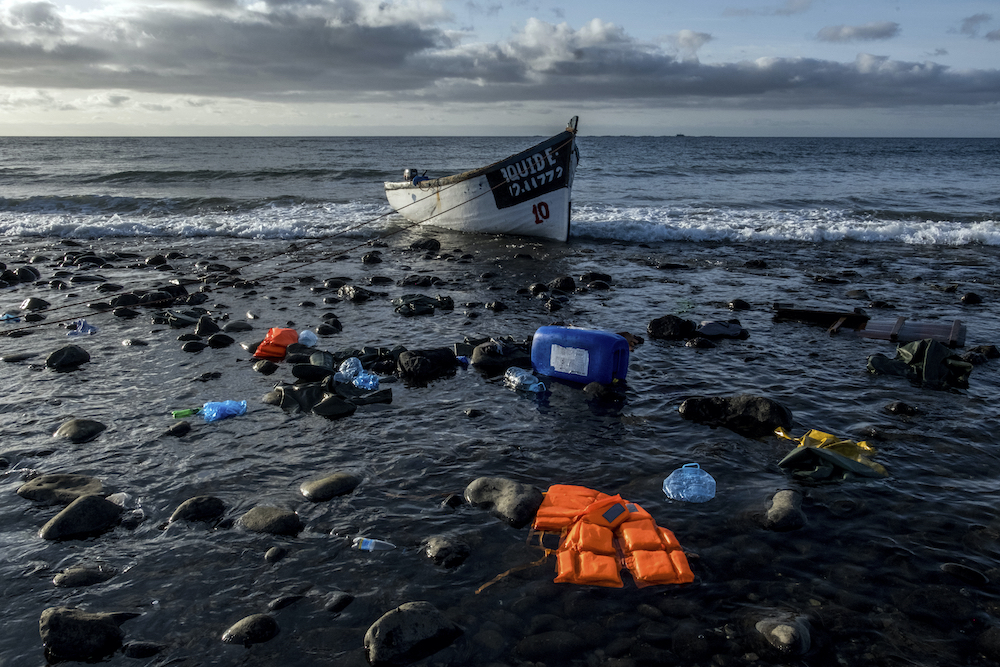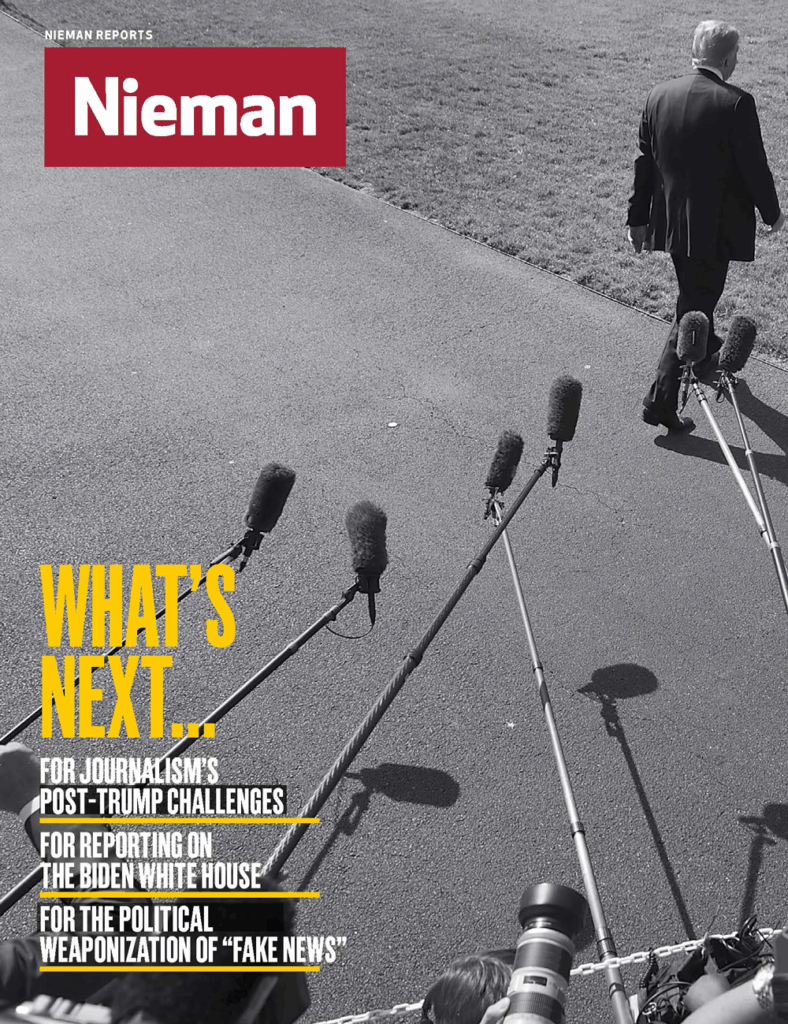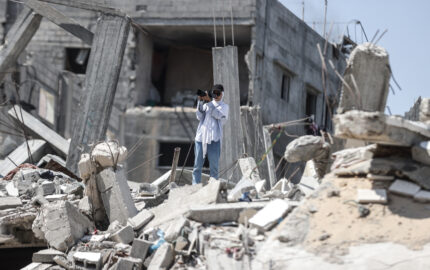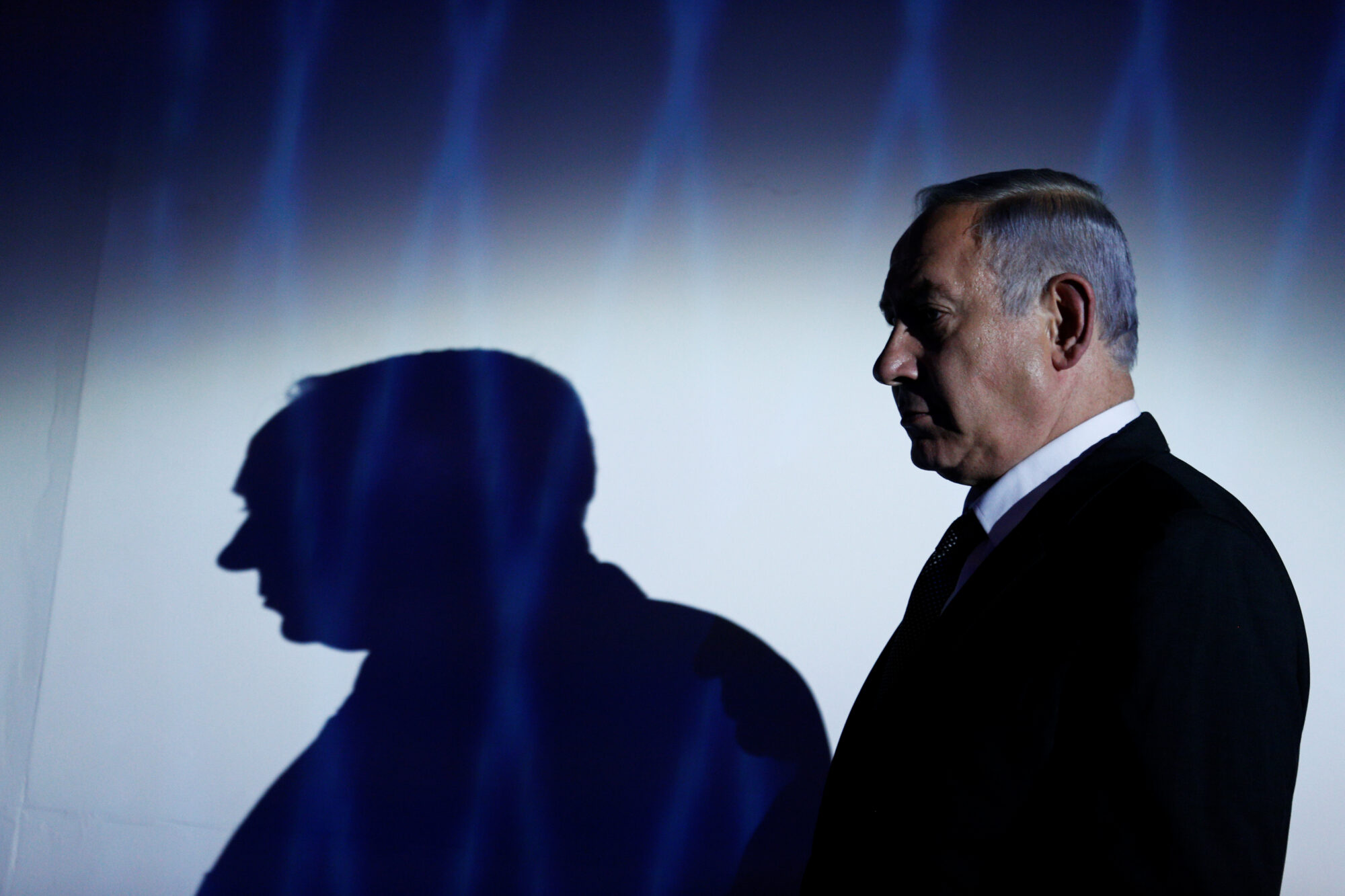A little over a year ago, 45 people in an inflatable boat died at sea trying to cross to Spain from a beach north of the city of Casablanca along Morocco’s Atlantic shore. More than half of the bodies were not recovered. But for a week following the wreckage, families sat and waited on the beaches, weeping and hoping that the waves would wash in the lifeless bodies of their loved ones.
Tragedies like these are far too common in Morocco, a country that has long been a departing point for clandestine crossings to Europe. Tighter border security and increased patrolling in the north have forced people into taking greater chances and more dangerous crossings, such as to the Canary Islands off Morocco’s Atlantic coast.
The general public has long become inured to such unfortunate events, and the media narrative has recently focused mostly on sub-Saharan migration since fewer Moroccans try to illegally cross today compared to a couple of decades ago. The lives lost could have been just one more passing story about the deaths of anonymous travelers in pursuit of better lives elsewhere, but Casablanca-based reporter Salahedine Lemaizi viewed the deaths as newsworthy.
He forced the public to acknowledge their lack of fortune, their desperation, and the reasons that motivate so many to gamble with their lives. In a series of gut-wrenching stories chronicling their lives and deaths published in the local newspaper Les Éco, Lemaizi explained what it was like to live in a small desolate village before making the decision to try to reach Europe, a decision that may lead to death.
He covered the burials, interviewed the families and neighbors, and produced reports that illustrated the efforts of a community to deal with the cruelty of such tragic deaths. His stories showed the absence of the state in large parts of the North African kingdom, where unemployment among youth is high and poverty is rampant. He showed how the community could only rely on its members due to the government’s failure to provide jobs and other aid to rural areas; with such meager resources, farmers often have little choice but to leave at any cost.
“It was hard. It was very hard,” Lemaizi says. “I wanted to chronicle their despair. I wanted to show how a state disappears during crises like this.”
Lemaizi remains one of the last journalists in Morocco who produces strong reporting in a climate of fear and repression
These days, stories like Lemaizi’s seem increasingly impossible. Press freedom advocates have denounced a steady decline in rights over the last few years. Despite the risks, some journalists are still managing to do courageous independent work. Lemaizi remains one of the last journalists in Morocco who produces strong reporting in a climate of fear and repression.
It comes at a high cost. When producing critical reporting, journalists have learned to stay attentive to how the authorities react, monitoring trolls on social media and websites that defame them, as indicators of the repressive measures that could come their way. Defamation websites, created with the backing of the regime, routinely send out warnings to journalists about what’s to come. Press freedom watchdogs have also chronicled consistent attacks on reporters who are perceived as too independent or too critical of the state. The press freedom watchdog Reporters Without Borders (RSF) ranks Morocco 133th out of 180 countries in its 2020 index and repeatedly denounces the judicial harassment of independent journalists and harsh prison sentences based on trumped-up charges.
These attacks have created a climate of fear, contributed to character assassination, and then made flimsy prosecutions more believable to the general public, press freedom advocates say. Recently the authorities have taken a new approach to silence critical voices. Convicting journalists of sex crimes is becoming a huge deterrent for the few remaining reporters who are still in the profession and not in jail.
The country’s press code was changed in 2016 to abolish prison sentences for journalistic offenses. Instead, human rights defenders say, the penal code has been used increasingly to punish critical journalists for alleged offenses seemingly unrelated to their work. As a result, a number of journalists have been arrested and charged with sex crimes. Under Morocco’s conservative criminal code, sex outside of marriage is illegal.
According to Aboubakr Jamaï, former publisher and founder of Le Journal Hebdomadaire (“The Weekly Journal”), a magazine created in 1997 that was shut down by the authorities in 2010, advertisers are routinely pressured to boycott journalists and publications that are too critical, eventually giving them a “fatal blow.”
“What remains today are isolated brave journalists who carry the torch of independent journalism,” he says. “They dare to investigate and criticize the power elites, especially the monarchy and its security apparatus. Their meager resources are often provided by international NGOs, which lead the regime to label them as traitors. After economically destroying independent journalism, the regime is now attacking independent journalists' moral integrity by levying bogus depravity charges. It is opportunistically surfing the #MeToo wave” because foreign NGOs will shy away from supporting a journalist accused of rape.
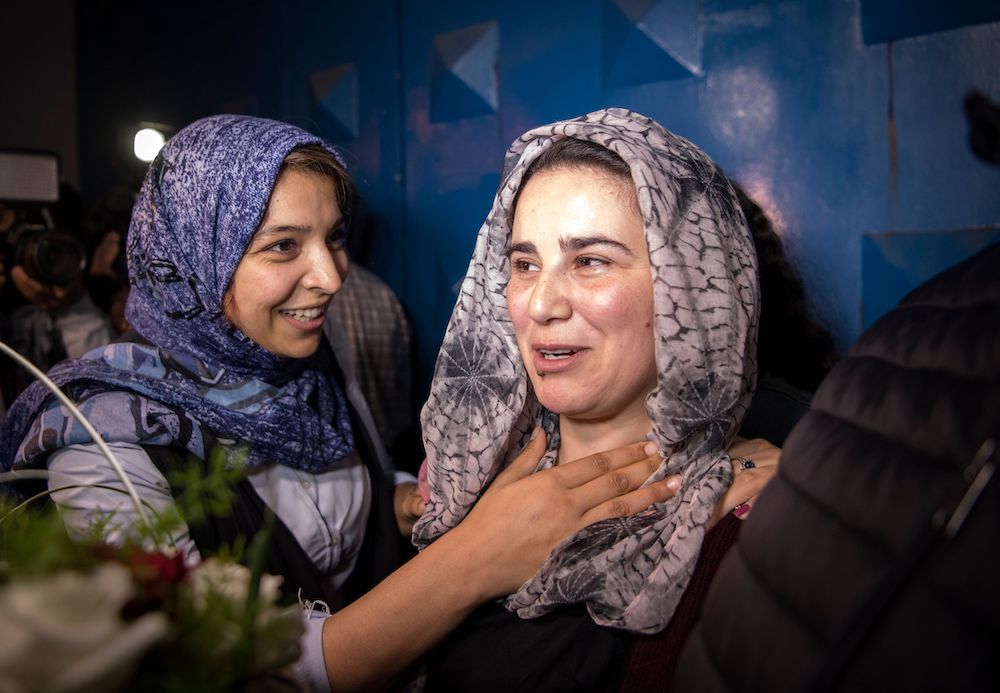
Akhbar Alyaoum (“Today’s News” in Arabic), an Arabic opposition paper and perhaps the only publication with no self-imposed censorship, has had its share of run-ins with the authorities. Three of its journalists have been convicted or arrested on charges related to sex crimes. Its former publisher Taoufik Bouachrine was sentenced to 15 years in prison for human trafficking and rape. He has denied the charges. The paper’s current editor Soulaiman Raissouni is in jail awaiting trial on a charge of rape. Christopher Deloire, RSF secretary-general, in a tweet said Raissouni is a “victim of a defamation campaign created by the digital media close to state services.” And a former journalist, Hajar Raissouni, was convicted of having premarital sex and an abortion, both of which are illegal in Morocco. She denied the charges. She was later pardoned by King Mohammed VI following an international campaign. Another Akhbar Alyaoum employee alleged in a Washington Post op-ed that she was forced to testify against her former boss and wrote that she is skeptical of the rape charges against Omar Radi, another high-profile reporter, currently also facing charges of spying. Radi’s lawyers have denied all the charges against him, according to the Committee to Protect Journalists (CPJ).
Hajar Raissouni has since moved to Sudan, her husband’s home country, despite Sudan’s dire economic situation and unstable political climate. “The harassment of my family did not stop after the royal pardon,” she says. “Defamation and surveillance never stopped, and I found myself in fear of getting convicted in a new case.”
That sentiment is echoed by Hicham Mansouri, an investigative reporter now exiled in France, sentenced to 10 months in jail on a 2015 charge of adultery after a trial that was widely denounced by international press freedom organizations. Mansouri, who denies the charges, claimed that the police set him up and fabricated evidence of adultery, according to Human Rights Watch.
As Raissouni notes, surveillance is common in Morocco. In recent months Amnesty International released a report documenting the sophisticated spying on a journalist and human rights advocates.
In addition to being targeted with sex crime charges and surveillance, independent publications that heavily depend on ad revenue have struggled to survive in a climate where advertising has been reduced in an attempt to control the content they publish. The economic model for the existing outlets is complicated. If they are not state-owned, many news outlets are owned or controlled by powerful figures close to the King. A well-controlled system of ownership ensures control and co-optation and makes independent journalism almost impossible to produce. Freelancers end up bearing the burden to elevate certain stories. A handful of news websites have been able to survive with some advertising revenue.
“It was already difficult before with fragile economic models, weak readership, and politicized public and advertising subsidies,” Mansouri says. “It is all the more so today with this climate of self-censorship and censorship due, among other things, to recent trials and harsh convictions. The only ‘prosperous’ media out there right now are the regime’s libel media [websites that specialize in maligning critics of the government] that have proliferated.”
The situation wasn’t always so dire. In the late 1990s, the late King Hassan II encouraged a freer media space, which resulted in the creation of independent publications that strongly criticized those in power and challenged most red lines. In the 2000s, after the ascension of King Mohammed VI to the throne in 1999, some journalists were prosecuted, mostly for defamation, but there was still a relatively free space for them to express themselves. In 2011, as pro-democracy protests swept the Arab world, the Moroccan king gave up some power and made some political concessions.
But observers see a clear deterioration in recent years.
“The level of freedom in Morocco’s media nowadays is incomparably lower than 10 or 15 years ago,” says Ahmed Benchemsi, Middle East and North Africa communications director for Human Rights Watch and founder and former publisher of the Moroccan weekly magazines TelQuel and Nishan. “Back then, the independent press was facing serious difficulties but at least it was still alive and able to put up a fight that was not completely lopsided. Back then, the support of international watchdogs when journalists were arrested or free outlets were on trial meant something, and often gave pause to the authorities’ efforts to suppress free speech.”
According to Benchemsi, Morocco’s media landscape has completely changed. “There is almost no free press left,” he says. “Morocco’s 2020 media scene is widely occupied by mouthpieces of the regime, websites that have close and troubling ties with security services, and are focused on character-assassinating critics.”
Morocco’s penal code has been used increasingly to punish critical journalists for alleged offenses seemingly unrelated to their work
Many independent journalists feel that they are left with little choice: follow the official line or face dangerous consequences. Another journalist, Imad Stitou, testified to the police in defense of Omar Radi concerning a rape allegation against him. Stitou now may face charges for complicity in the rape; press freedom watchdogs view that possibility as pressure for him to withdraw his support for Radi. “Today, I feel incapable of doing my job,” Stitou says. “Two colleagues and friends [Radi and Soulaiman Raissouni, editor of the Arabic-language daily Akhbar Alyaoum] are now in jail because they dared saying things, because they had the courage to defy red lines.” Soulaiman Raissouni, the uncle of Hajar Raissouni, wrote frequent editorials extremely critical of the authorities, while Radi was doing research on land expropriation and for years documented human rights abuses.
Imad Stitou, whose childhood dream was to become a reporter, has worked for local and foreign publications, print and digital, in the hope of finding an outlet that would let him freely practice his profession. At the moment, with the serious charges he may face, he prefers to pause before thinking of a next step. “Today, we can still talk about elections and economic recovery and criticize the government that does not govern,” he says, referring to the king and his advisers’ tight control of the political system. “We try to choose an outlet that will not censor us, or less than the others. We know what the red lines are, and we try to play with these red lines. We used to know what they were but it has now become complicated as we see new red lines every day.”
Morocco has several “red lines,” according to Human Rights Watch. The organization says a number of topics are off limits, including Islam, the royal family, and “the country’s ‘territorial integrity,’ which is usually but not exclusively applied to Morocco’s claim of sovereignty over Western Sahara.”
Still, Lemaizi and the few other remaining free voices in Morocco are undeterred. Some reporters, mostly freelancers or correspondents for international news agencies, manage to do their work while avoiding trouble.
Nour El Hoda Bouajaj works for Lakome, a digital news outlet run by Ali Anouzla, who since 2013 has been awaiting trial on a charge of “promoting terrorism” — a charge that RSF, CPJ, and a host of other human rights organizations have denounced as baseless.
Anouzla has been keeping a lower profile — covering foreign countries and uncontroversial stories in Morocco — to survive in the business and stay out of jail. “We are all scared; there isn’t currently any Moroccan journalist that isn’t scared, aside from those that work for publications that are close to the authorities,” Bouajaj says. “Many just are thinking about migrating.”
Working conditions remain difficult. Some of the outlets that manage to produce good journalism — Médias24, Yabiladi — mostly focus on local news, conducting investigations on migration, crime, and other topics within the red lines. Being discreet has also been the secret to their ability to continue doing good work without getting into much trouble. In recent years, Médias24 did a series of meticulous articles about the light sentences meted out to sexual offenders. Yabiladi has delved into complex migration stories, such as the exploitation of Moroccan female workers on strawberry farms in southern Spain, shedding light on sexual abuse allegations that had gone unnoticed.
Many independent journalists feel that they are left with little choice: follow the official line or face dangerous consequences
Akhbar Alyaoum has provided its readers with consistent and hard-hitting critical news and political commentary. The daily paper’s editor, Soulaiman Raissouni, now in jail, spoke critically of the monarchy and of the King’s entourage — something that is almost nonexistent today in other outlets.
Lemaizi, the Casablanca-based journalist who wrote the series about lives lost during migration, explains that after years of trying to separate his political activism and journalism, he’s finally embraced advocacy journalism. He studied political science at the University of Montreal and then moved back to Morocco in 2005 to study journalism. He has worked for several outlets, tried to start a communication company (a short-lived venture), and then worked as a staffer for a business newspaper that he left last February.
Working for a business paper, he wasn’t allowed to report anything negative about companies that were essential to the outlet’s revenues. “When I specialized in migration issues, I couldn’t imagine working on other topics because there was so much I could cover,” he says. “I was interested in different kinds of stories, business stories, but I couldn’t dig deep. It became a rational choice to avoid censorship. If you have to be in a precarious financial situation, you might as well be without losing face.”
The father of one decided that working at a relatively low-paying job and sacrificing a lot of his family time wasn’t worth it, so he resigned his staff job and decided to develop an entrepreneurial media outlet with his wife, also a journalist. He started the Moroccan Network of Migration Journalists, with about 50 reporters in Morocco and abroad, to better cover migration issues, support each other, and develop a space for creation and debate. He plans to apply for grants and figure out a way other than accepting advertising to sustain his publication.
“I am interested in workers, I am interested in migrants. I am interested in the voiceless,” he says. “That is what the outlet will be about.”
Correction: A review of this article found that more of the material about Morocco’s “red lines” should have been attributed to Human Rights Watch. The story has been updated to include the full attribution.
